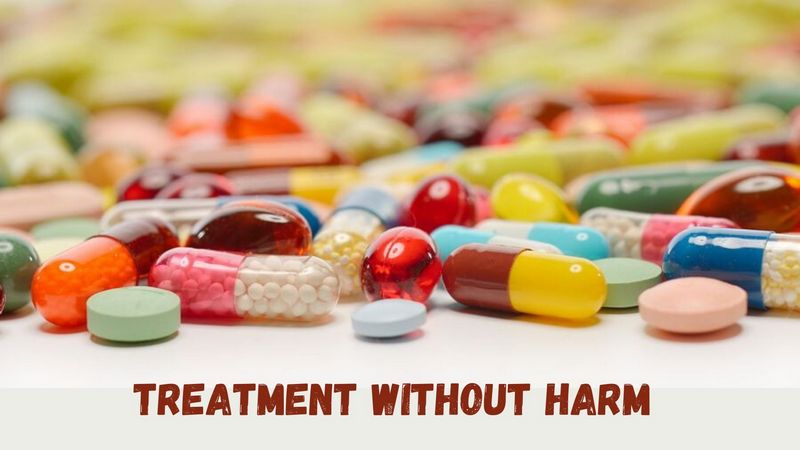Treatment Without Harm: What You Need to Know About Medicines and Their Use?

Few people think about how the medicine “works” when they take a pill for a particular ailment. Even worse, when a drug is not prescribed by a doctor and you practice self-medication, improper use of drugs and the drug resistance can become global problems that can lead to the fact that the drugs will no longer work and humanity will be left without treatment for serious diseases.
We talked with the founder of My Canadian Pharmacy about medications, their effects, forms and proper use.
How does the medicine work? What exactly happens when it enters the body?
First, it is important to distinguish between medicines and non-medications. A medicine is something that has a healing effect, that is, a substance that cures something. Moreover, the therapeutic effect of the drug must be proven.
Everything that has a different effect is, by definition, biologically active additives. This is a fundamental difference, but today there patients confuse them. Although today the difference between the drug and the biological supplement is clearly fixed in the legislation and there is a signature “Not a medicine” on any packaging of dietary supplements, unfortunately, people either don’t read it or don’t understand the difference.
The principle of the drug’s action is a rather complicated question. There are a huge number of drugs, many dosage forms, and all drugs are administered in different ways, and they all have different mechanisms of action, and a huge number of indications.
If we talk about the methods of administration, then conditionally the drugs can be divided into those that are swallowed – these are tablets, syrups, capsules – and those that are absorbed in other ways, for example, are administered parenterally, that is, bypassing the gastrointestinal tract – these are injections into a vein, into a muscle, or under the skin. Also, the medicine can be absorbed in the oral cavity, a classic example is nitroglycerin, which is absorbed from under the tongue. Also, the medicine can be absorbed through other mucous membranes, for example, as suppositories through the rectum.
The way of getting the medicine into the human body determines what happens next. If the drug is injected into a vein, then the medicine immediately enters the bloodstream. This method, as a rule, gives the fastest effect. If the medicine is swallowed in the form of a tablet, then there are also many options because the further scenario depends on the drug itself. The medicine contains not only the active substance but also many other components, ingredients, excipients. The medicine in the form of a tablet enters the stomach, where it begins to dissolve and disintegrate, and the active substance is released there. It is absorbed into the stomach and enters the liver through a special blood flow system. And what happens with the medicine next is a more complicated conversation because some drugs pass through the liver directly, that is, without turning into another substance, while others undergo very complex changes. For example, they can turn into intermediate forms, can turn into other medicines, and only after that they get into the bloodstream and already begin to work.
Actually, a very important thing depends on the speed of the drug. Some tablets begin to work very quickly, after a few minutes. And for others, it may take hours or days, and there are such medicines that start to work after a few months.
How long does it take for various drugs to be absorbed?
If you need to get a very fast action and high concentration from the drug, then it is administered intravenously or intramuscularly. Tablets provide not so fast but much longer action, and this is their advantage.
So, if you need to get a very quick action and a high concentration from an antibiotic, for example, with a dangerous infection, then the drug is administered intravenously or intramuscularly.
By the way, this also applies to painkillers. For example, in order to relieve a severe pain syndrome, a patient with a heart attack is given a drug intramuscularly or intravenously.
It is worth noting that many patients believe in the miraculous power of droppers. In fact, droppers are also a medicine that is simply injected into a vein, and its only purpose is to provide a more rapid effect of the drug. If this is not necessary, the same medicine will work perfectly if it is taken in pill form.
What are natural and synthetic medicines?
There are various groups of drugs. Some of them can be called natural, for example, drugs of fungal origin, and some relate to synthetic ones. At the same time, the latter are higher in quality than natural ones because when synthesizing a medicine, it is much easier to get a pure product than isolating it from plant or animal raw materials. Of course, not everything can be synthesized. But, nevertheless, a synthetic medicine will always be better, purer and more predictable in its action than natural. By the way, the most terrible poisons are plant poisons.
Why can one drug be presented in different forms?
Because even the same disease can occur in different states. In the chronic course of the disease, doctors usually prescribe drugs in the form of tablets, while patients with acute conditions usually receive drugs in injections.
It is necessary to mention only one thing. There is a small group of drugs that cannot be absorbed into the stomach. A classic example is insulin. Of course, it would be nice if diabetes patients had the opportunity to take insulin pills, but so far this problem has not been solved and most likely will never be solved because insulin is a protein and it simply cannot be absorbed in the stomach. Therefore, insulin is that rare example when there is no other way than injecting the drug through injections.
Why the medicine may not work?
There are many reasons for this problem. First, it is important to remember that each medicine has very strict indications for use. Unfortunately, sometimes even doctor do not know about this. There are special regulatory bodies in any country that very strictly record indications for each drug: when it should be used and when it should not be used. Contraindications can be relative and absolute. This is the first principle that must be observed so that patients receive the expected effect from the medicine. Actual practice shows that they often go beyond the scope of officially registered indications or vice versa do not receive a medicine in those cases in which it should be prescribed.
Second moment. For example, there is a medicine which is taken to treat a headache, and it does not work. There can be many reasons. The question of choosing the drug that this particular patient needs is a very delicate point. So, headache medicines are represented by a huge number of drugs, and the doctor is responsible for the choice. Therefore, inadequate choice of medication is one of the reasons why it may not work.
The third reason is the wrong dose. Doses are very strictly prescribed, but there is a tendency to prescribe a lower dose because the doctor is often guided by the fact that it is better to get a lower dose that have overdose. But this is a wrong attitude. Therefore, drugs are often used in inappropriate doses.
Another point is the patients’ expectations. You need to understand that all medicines are different. And when the patient complains that the medicine does not work, then he or she should clarify what kind of action he or she is talking about. Because a headache can be removed in a few minutes but pneumonia can be cured in a few hours or a few days. But if we talk about atherosclerosis, then the drugs work for years, and the doctor must explain this to the patient. Of course, in such a situation, you may get the feeling that the medicine does not work, while it actually works perfectly. Therefore, it is important to remember that there are diseases that require an extremely long treatment, and so far there are no wonderful drugs that could cure atherosclerosis in a few days.
The effectiveness of a medicine can be affected by quality. The medicine should not be expired, it is very easy to check the expiration date on the package. In addition, medicines are not always stored correctly, and it is already quite difficult to verify this. And such cases occur frequently. For example, a medicine may freeze due to extreme cold. Therefore, you should always pay attention to the expiration date and storage conditions. Unfortunately, this is often neglected.
And the last moment is falsification or violations during production. Checking this factor is difficult. Although our legislation is quite strict regarding the production of drugs, it is worth recognizing that laws and regulations are not always respected. Sometimes pharmacies sell not quite high-quality drugs. It happens that the medicine deteriorates due to the fact that during its production the technological process was disrupted.
Is it important to wash the medicine down with water?
To begin with, you can give everyone a very simple advice in order to get an answer to this question. Do an experiment – a solubility test. Take a test tube with water and put a pill into it. See how long it will dissolve. And you will see what happens approximately with the pill in the stomach.
The doctor is not required to tell you in each specific case how to take this or that medicine. Because the manufacturer knows all the pharmaceutical properties of the drug, and it is their duty to clearly indicate in the package leaflet how to take the medicine. Therefore, you just need to read the insert because neither the doctor nor the patient can ever remember all those different options that are recommended for different drugs.
Category: Health and Wellness
Tags: drugs, medications, medicine, treatment
